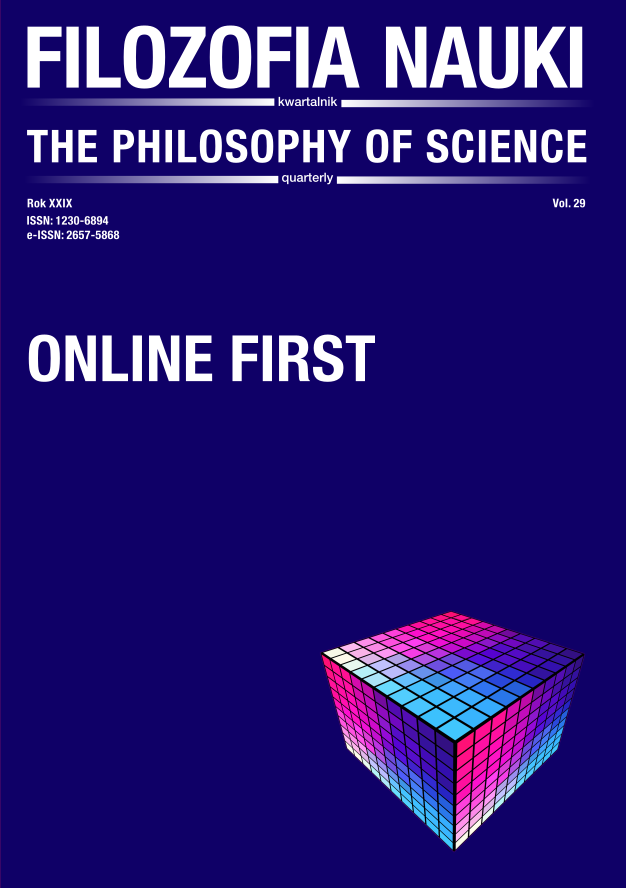A Hybrid Account of Structural Rationality
DOI:
https://doi.org/10.14394/filnau.2024.0001Słowa kluczowe:
coherence, structural rationality, akrasia, wide scope, narrow scope, rational requirementsAbstrakt
In this paper, I will present and defend a hybrid account of structural rationality, simultaneously accommodating what two rival accounts, wide-scopism and narrow-scopism, get right. Wide-scopism holds that moving from an incoherent state to a coherent state is always a structurally rational thing to do. Narrow-scopism holds that there are cases in which the particular way in which coherence is achieved matters to structural rationality. The hybrid account I offer here holds that these two claims are compatible and true.
Bibliografia
Bedke M. (2009), “The Iffiest Oughts: A Guise of Reasons Account of End-Given Conditionals,” Ethics 119(4), 672–698. https://doi.org/10.1086/600130
Broome J. (1999), “Normative Requirements,” Ratio 12(4), 398–419. https://doi.org/10.1111/1467-9329.00101
Broome J. (2007), “Wide or Narrow Scope?” Mind 116(462), 359–370. https://doi.org/10.1093/mind/fzm359
Brunero J. (2010), “The Scope of Rational Requirements,” Philosophical Quarterly 60(238), 28–49. https://doi.org/10.1111/j.1467-9213.2008.596.x
Brunero J. (2012), “Instrumental Rationality, Symmetry, and Scope,” Philosophical Studies 157, 125–140. https://doi.org/10.1007/s11098-010-9622-0
Darwall S. (1983), Impartial Reason, Ithaca, N.Y.: Cornell University Press.
Greenspan P. (1975), “Conditional Oughts and Hypothetical Imperatives,” Journal of Philosophy 72(10), 259–276. https://doi.org/10.2307/2024734
Hill T. (1973), “The Hypothetical Imperative,” Philosophical Review 82(4), 429–450. https://doi.org/10.2307/2183709
Huemer M. (2011), “The Puzzle of Metacoherence,” Philosophy and Phenomenological Research 82(1), 1–21.
Kolodny N. (2005), “Why Be Rational?” Mind 114(455), 509–563. https://doi.org/10.1093/mind/fzi509
Kolodny N. (2007), “State or Process Requirements?” Mind 116(462), 371–385. https://doi.org/10.1093/mind/fzm371
Lee W. (2021), “The Independence of (In)coherence,” Synthese 199, 6563–6584. https://doi.org/10.1007/s11229-021-03081-z
Lord E. (2014), “The Real Symmetry Problem(s) for Wide-Scope Accounts of Rationality,” Philosophical Studies 170, 443–464. https://doi.org/10.1007/s11098-013-0258-8
Scanlon T. M. (1998), What We Owe to Each Other, Cambridge, Mass.: Harvard University Press.
Scanlon T. M. (2007), Structural Irrationality, [in:] Common Minds: Themes from the Philosophy of Philip Pettit, G. Brennan (ed.), Clarendon Press, 84–103.
Schroeder M. (2004), “The Scope of Instrumental Reason,” Philosophical Perspectives 18(1), 337–364. https://doi.org/10.1111/j.1520-8583.2004.00032.x
Schroeder M. (2009), “Means-End Coherence, Stringency, and Subjective Reasons,” Philosophical Studies 143(2), 337–364. https://doi.org/10.1007/s11098-008-9200-x
Wallace R. (2001), “Normativity, Commitment and Instrumental Reason,” Philosophers’ Imprint 1(3), 1–26.
Way J. (2011), “The Symmetry of Rational Requirements,” Philosophical Studies 155, 227–239. https://doi.org/10.1007/s11098-010-9563-7
Pobrania
Opublikowane
Jak cytować
Numer
Dział
Licencja
Prawa autorskie (c) 2024 Erhan Demircioglu

Utwór dostępny jest na licencji Creative Commons Uznanie autorstwa – Użycie niekomercyjne – Bez utworów zależnych 4.0 Międzynarodowe.



















 Filozofia Nauki | ISSN 1230-6894 | e-ISSN 2657-5868
Filozofia Nauki | ISSN 1230-6894 | e-ISSN 2657-5868